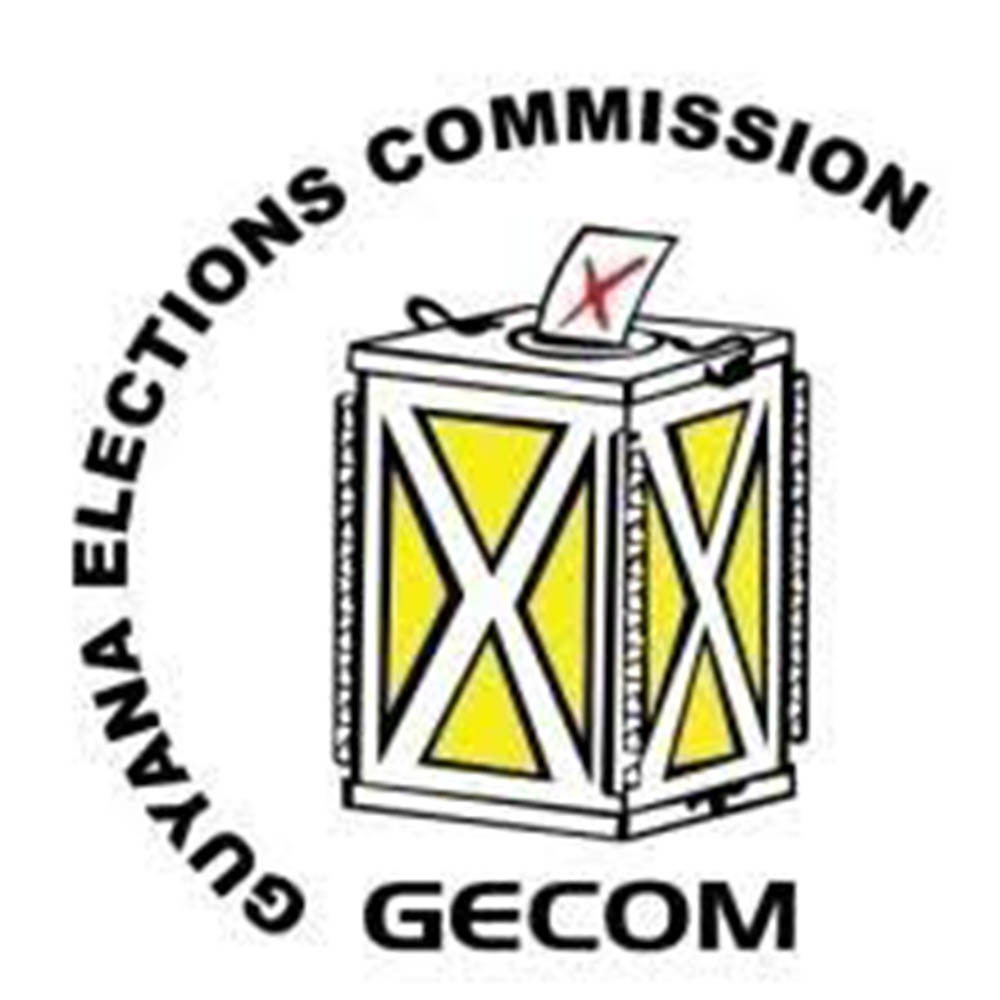The Guyana Elections Commission (GECOM) on Friday said that no decision had been taken on the introduction of electronic fingerprinting at polling places.
In a statement issued in response to a Kaieteur News report, “GECOM agrees to use electronic fingerprinting at the place of poll…,” GECOM said the decision given by the Chairman was that if such a system were to be introduced at the place of poll as a requirement for persons to vote, persons will be unable to vote in any absence/failure of such a means of identification, and that this would be contrary to the Constitution, as was made clear in the decision in the Esther Perreira case.
It said referring to the Esther Perreira case, the Chairman recalled that the decision established that in accordance with Articles 59 and 159 of the Constitution, once a person is 18 years and is registered that person is entitled to vote at an election. “If, on the other hand, a biometric identification system was to be used as an alternative means of identification, so that persons will be permitted to be identified by additional means and be allowed to exercise their right to vote even in the absence of such biometric identification, then the introduction of biometric identification at the Polling Stations might be permissible. But this would simply be another means of identification for which the legislation does not currently provide, this will require legislative amendment,” it noted.
Notwithstanding her considerations, the Chairman, the statement said, was very clear that she does not support the calling for legislative provision to be made before a feasibility study is done to assess whether the introduction of biometric identification at polling stations is something that can be done effectively.
Meanwhile, the statement According to the statement, the Chairperson explained that the powers given to the Local Government Minister and the Commission are different and not in conflict. She said that the Minister has power to divide Guyana into areas as provided for, considering the factors specified by Article 72(2) of the Constitution in defining the boundaries of those areas. This includes the power to define and/or modify the boundaries of neighbourhoods and people’s co-operative units within those neighbourhoods, and the establishment of local democratic organs for those.
On the other hand, the Chairman noted that the Commission only has the power to combine or subdivide those divisions within neighbourhoods, and municipalities, to form constituencies.
“It follows therefore that the Commission can only exercise its powers after the Minister had demarcated and defined the boundaries of the electoral divisions within the local authority area. “The Commission cannot ignore those divisional boundaries and arbitrarily set its own. The Commission’s constituencies must be based on and reference the boundaries of the electoral division that have either been combined or subdivided to form the constituencies.”
Addressing some existing concerns regarding the recently gazetted orders of the Minister, in which he made changes to the existing Local Authority Areas, and at the same time may have identified changes to those constituencies within the Local Authority Areas, the Chairman pointed out that those changes made to the boundaries of the local authority areas, and any changes to electoral divisions within those Local Authority Areas, are within the legal authority of the Minister.
“She emphasized however, that if the Minister sought to form or change the configuration of constituencies within those areas, he would have usurped the power granted to the Commission to combine and sub-divide electoral divisions to form constituencies. If such were the case, the Minister would have acted outside of his legal remit,” the statement explained.
In October, Local Government Minister Nigel Dharamlall via Order No. 44 of 2022 – The Local Democratic Organs (Neighbourhood Democratic Councils) (Amendment) Order 2022, effected changes to the boundaries of 14 local authorities.
Dharamlall later said a decision was taken to revert to the use of 2016 district boundaries for the upcoming 2023 Local Government Elections (LGE), while saying that it would ensure there is greater democracy and representation of the people at the local level.






